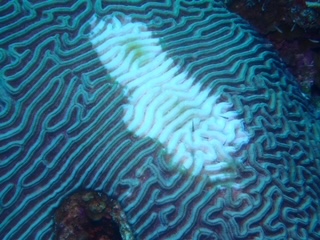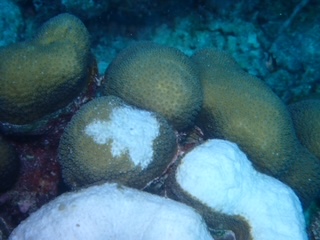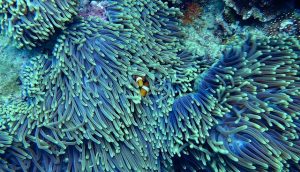The Florida Keys, a unique and ecologically diverse region known for its stunning coral reefs, is facing a severe threat due to the recent extreme hot weather. The coral reefs, which are already under stress from various environmental factors, are experiencing significant bleaching and mortality as water temperatures reach unprecedented levels, exceeding 100 degrees Fahrenheit. In this blog, we will explore the devastating impact of extreme heat on the delicate marine ecosystem of the Florida Keys, delving into the causes, consequences, and potential solutions to mitigate this alarming issue.
The Significance of Florida Keys’ Coral Reefs:
Florida Keys’ coral reefs are among the most biologically diverse ecosystems on Earth, supporting a vast array of marine life. From colorful corals to various fish species, the reefs provide a critical habitat for marine biodiversity and are essential for the local economy, attracting tourists, divers, and recreational enthusiasts from around the world. These reefs are also natural barriers, protecting coastal communities from storm surges and erosion.
The Threat of Extreme Hot Weather:
Climate change, driven by human activities such as burning fossil fuels and deforestation, is the primary driver of the rising temperatures. As global temperatures continue to soar, the ocean absorbs much of this excess heat, leading to warming waters in the Florida Keys. Elevated sea temperatures cause the coral polyps to expel symbiotic algae called zooxanthellae, which provide the corals with essential nutrients and their vibrant colors.
Bleaching and Mortality of Coral Reefs:
Coral bleaching is a phenomenon where corals lose their vibrant colors due to the expulsion of zooxanthellae. The recent extreme hot weather has triggered mass bleaching events in the Florida Keys, causing extensive coral mortality. The prolonged exposure to high temperatures is particularly devastating for corals, leaving them weak and susceptible to disease, further exacerbating the decline of the already fragile reefs.
Moreover, as the water temperatures continue to rise, the likelihood of recovery becomes slim, pushing the coral reefs towards a state of irreversible decline. This has severe implications not only for the coral species themselves but also for the entire marine ecosystem that relies on these reefs for survival.
Seeing this effect on our reefs first hand, its very hard to think about how these reefs are dying due to our carbon footprint we leave on our earth. Recently coming back from an international trip to an island that can be known as “scuba paradise” it was heart breaking to see that even reefs there are affected. I continue my day-to-day life working on trying to reduce my carbon footprint hoping to encourage the people around me to do so as well.
Impact on Marine Biodiversity:
The loss of coral reefs disrupts the balance of marine biodiversity in the Florida Keys. Coral reefs serve as nursery grounds and feeding areas for a wide variety of fish and invertebrates. When the reefs degrade, many marine species lose their habitat, leading to decreased fish populations and affecting the entire food web. The decline in fish populations also affects local fishing industries, impacting the livelihoods of coastal communities.
The Ripple Effect on the Economy:
The Florida Keys’ economy heavily relies on tourism, with visitors flocking to the region to explore its pristine coral reefs and underwater wonders. However, the deterioration of the reefs due to extreme heat poses a significant threat to the tourism industry. As coral bleaching and mortality become more frequent and apparent, visitors may be deterred from visiting the area, leading to a decline in tourism revenue.
Furthermore, the reduction in fish populations affects recreational fishing and commercial fisheries, which play a crucial role in the local economy. The livelihoods of fishermen and seafood businesses are at risk as their catches decline due to the loss of coral reefs and associated marine life.
Safeguarding Florida Keys’ Coral Reefs:
Despite the severity of the situation, there is hope for protecting and preserving Florida Keys’ coral reefs. Immediate and long-term actions can be taken to mitigate the impact of extreme hot weather on the delicate marine ecosystem:
1. **Reduce Carbon Emissions:** To address the root cause of rising temperatures, a global effort to reduce carbon emissions is imperative. Transitioning to renewable energy sources and adopting sustainable practices can help curb climate change and slow down ocean warming.
2. **Marine Protected Areas (MPAs):** Establishing more marine protected areas around the Florida Keys can help create sanctuaries for coral reefs and marine life to recover and thrive. Strict regulations within these areas can limit human activities that further stress the reefs.
3. **Coral Reef Restoration:** Scientists and conservationists are exploring various methods of coral reef restoration, including coral gardening, artificial reefs, and selective breeding of resilient coral species. These efforts can help bolster the resilience of the reefs in the face of extreme heat and other stressors.
4. **Public Awareness and Education:** Raising public awareness about the importance of coral reefs and their vulnerability to climate change is crucial. Engaging communities and educating visitors can foster a sense of responsibility and encourage sustainable practices.
The recent extreme hot weather in the Florida Keys is taking a devastating toll on its magnificent coral reefs. With water temperatures surpassing 100 degrees Fahrenheit, the coral is dying before it even has a chance to bleach. The loss of these delicate ecosystems has far-reaching consequences, affecting marine biodiversity, the economy, and the livelihoods of local communities. It is essential to take immediate action to address the root causes of climate change and implement conservation efforts to safeguard Florida Keys’ coral reefs for future generations to cherish and enjoy.


These are two images i’ve captured while scuba diving just to show the real effect and how sad it is to see that the little things we do in life can cause our beautiful ocean reefs to be damaged



